Yes, your air conditioner can produce carbon monoxide. However, it is not a common occurrence and is usually a result of a malfunctioning system. Carbon monoxide is a colorless and odorless gas that can be deadly when inhaled in high concentrations. Therefore, it is important to understand the potential risks and take necessary precautions.
In this blog post, we will discuss how an air conditioner can produce carbon monoxide, can my air conditioner produce carbon monoxide or not, the signs of a malfunctioning system, and what you can do to prevent it.
As a responsible homeowner, it is crucial to be aware of the potential dangers and take proactive steps to ensure the safety of your family and loved ones. Our aim is to provide you with the necessary information to make informed decisions about your air conditioning system.
So, let’s dive in and examine the causes, symptoms, and prevention measures of carbon monoxide in air conditioners.
How an Air Conditioner Can Produce Carbon Monoxide?
An air conditioner typically does not produce carbon monoxide. However, if the unit is not properly maintained or installed, it can pose a risk of carbon monoxide poisoning.
Carbon monoxide is a colorless, odorless gas that can be produced by gas appliances or combustion engines. If the air conditioner’s combustion process that powers the unit’s compressor not working properly can create carbon monoxide as a byproduct.
Additionally, if the air conditioner’s exhaust system is blocked or damaged, carbon monoxide can build up and seep into the living space.
Lastly, if the unit is malfunctioning or has a damaged heat exchanger, it can also produce carbon monoxide.
It is important to have regular maintenance and inspections of your air conditioning unit to ensure safe and proper operation.
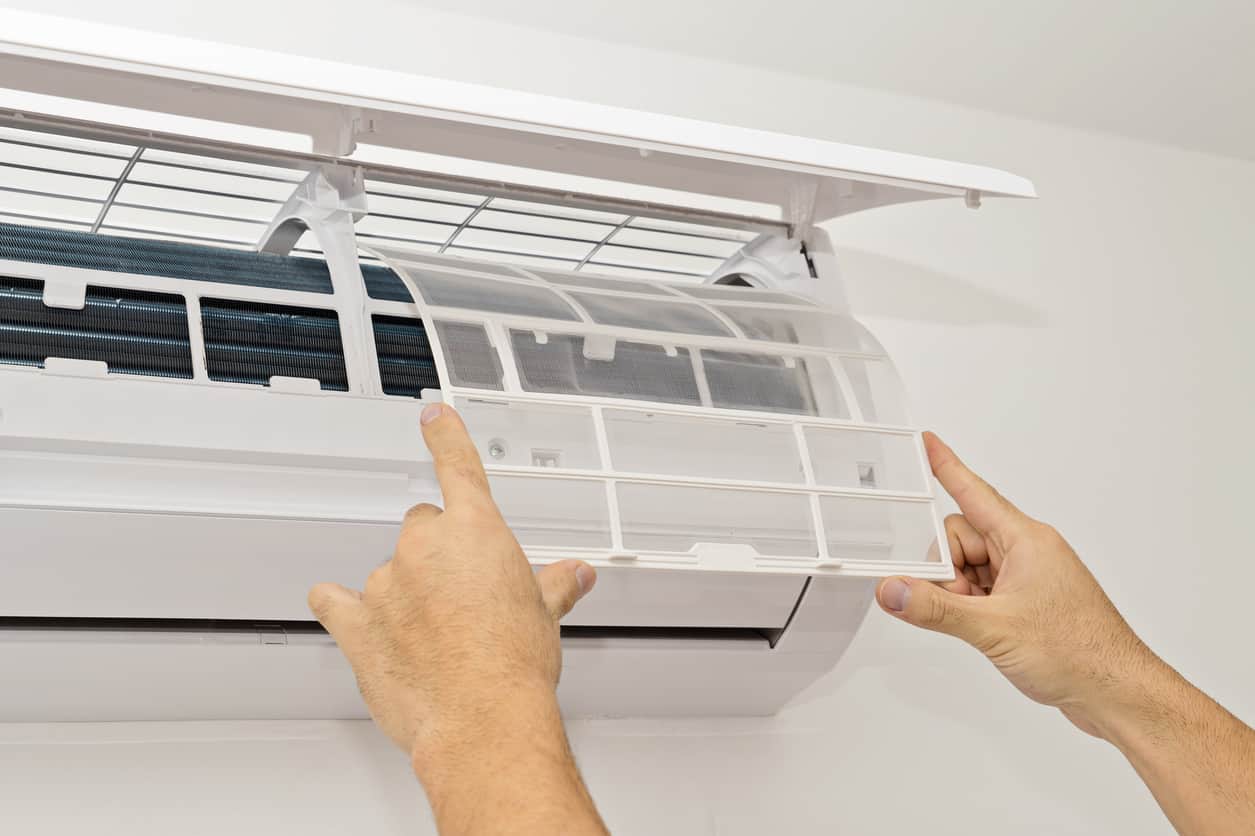
Can My Air Conditioner Produce Carbon Monoxide? Learn the Fact
Your air conditioner is one of the few appliances in your home that uses combustion to function. Because of this, there is a very real risk that your AC unit could produce carbon monoxide gas. While most units are equipped with safety features that prevent this from happening, it’s important to be aware of the dangers and know what to do if you suspect your air conditioner is producing carbon monoxide.
If you have an air conditioner, you may be wondering if it can produce carbon monoxide. The answer is yes, but it is very unlikely. Carbon monoxide is a byproduct of combustion, so it can be produced when certain fuels are burned.
However, most air conditioners use electricity to power their compressors, so they don’t produce carbon monoxide. Additionally, many air conditioners have built-in safety features that prevent the release of carbon monoxide into your home.
That being said, there are some rare cases where air conditioners can produce carbon monoxide.
If your air conditioner uses a gas-powered engine to power its compressor, it could theoretically produce carbon monoxide. Additionally, if your air conditioner is old or in poor repair, it might not have the proper safety features in place to prevent the release of carbon monoxide.
If you’re concerned about the possibility of your air conditioner producing carbon monoxide, you can have it inspected by a qualified technician to make sure that everything is in working order.
How Do You Know If Your Ac is Leaking Carbon Monoxide?
If you have an AC unit, it’s important to know if it’s leaking carbon monoxide.
Here are a few ways to tell:
1. Check for soot around the unit: If there is a black buildup of soot, this could be an indication that your AC is leaking carbon monoxide.
2. Pay attention to any strange smells coming from the unit: Carbon monoxide is odorless, but if there are other gases present, they may produce a smell.
3. Be Aware: Be alert of any symptoms that you or others in your home may experience when near the AC unit. These could include headaches, dizziness, nausea and vomiting, shortness of breath, and fatigue.
If anyone experiences these symptoms and they go away when they leave the area near the AC unit, it’s possible that carbon monoxide poisoning is occurring.
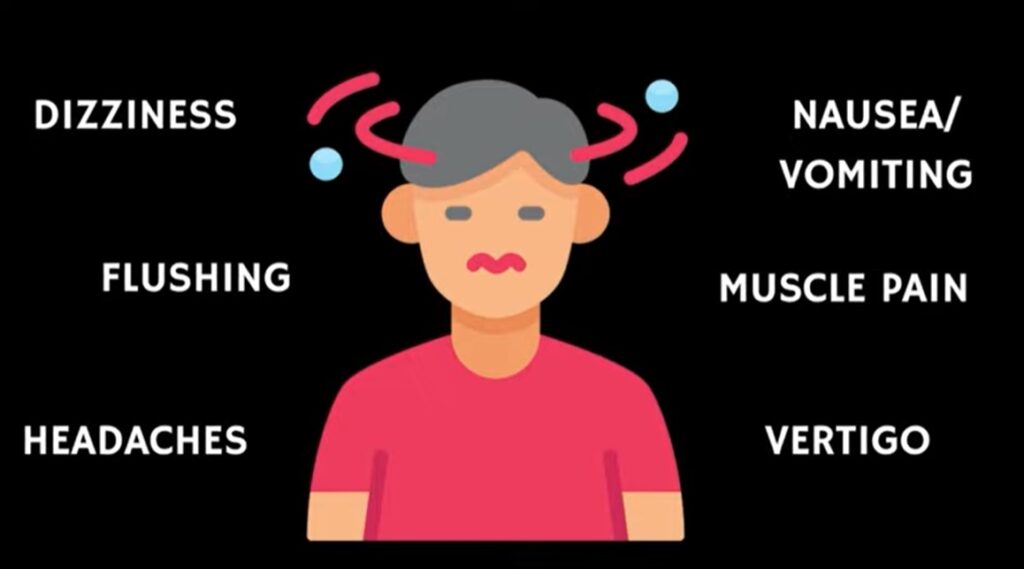
4. Use a carbon monoxide detector: You can use a carbon monoxide detector in your home to monitor the levels of the gas. If you notice elevated levels of carbon monoxide, this could be an indication that your AC unit is leaking gas into your home.
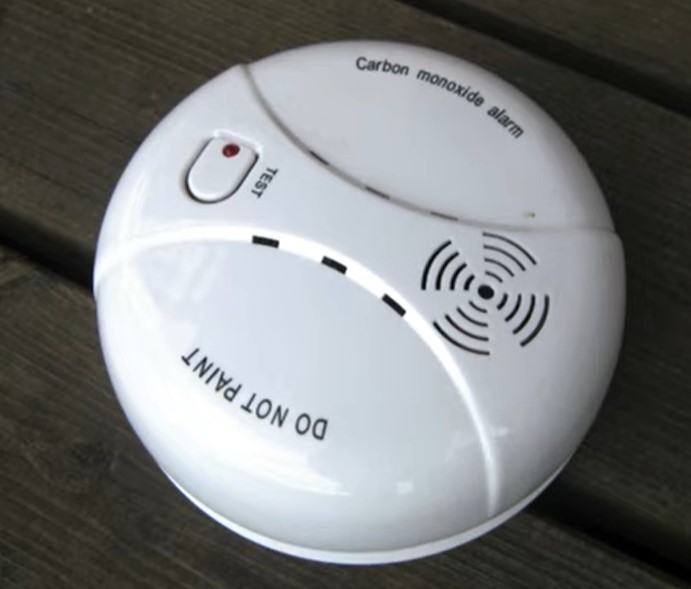
If you suspect that your AC unit is leaking carbon monoxide, it’s important to take action immediately to avoid serious health consequences for yourself and those in your home.
Turn off the unit and open all doors and windows to ventilate the area.
What Can I Do to Prevent Carbon Monoxide Emissions from My AC?
As a responsible homeowner, it is important to take measures to prevent carbon monoxide emissions from your air conditioning unit.
One effective way to do this is to schedule regular maintenance checks with a licensed HVAC technician. This will ensure that your AC unit is functioning properly and that any potential leaks or malfunctions are addressed before they become a danger.
Additionally, it is important to ensure that your home has adequate ventilation and to never block air vents or exhaust pipes.
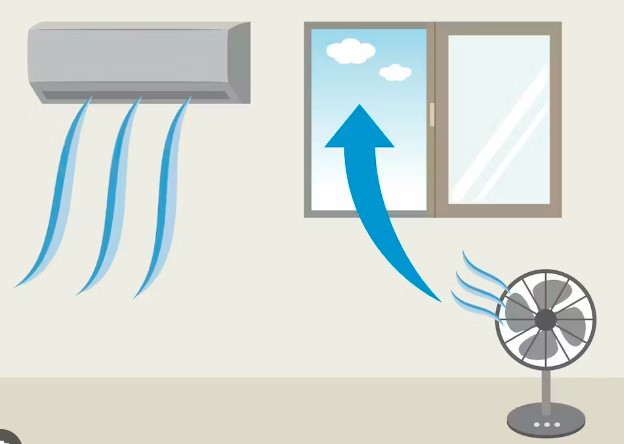
In addition, do not use a stove, portable generator, fireplace, or barbeque system inside your air conditioning room. Due to inadequate ventilation, carbon monoxide and other pollutants may accumulate in your air conditioning room.
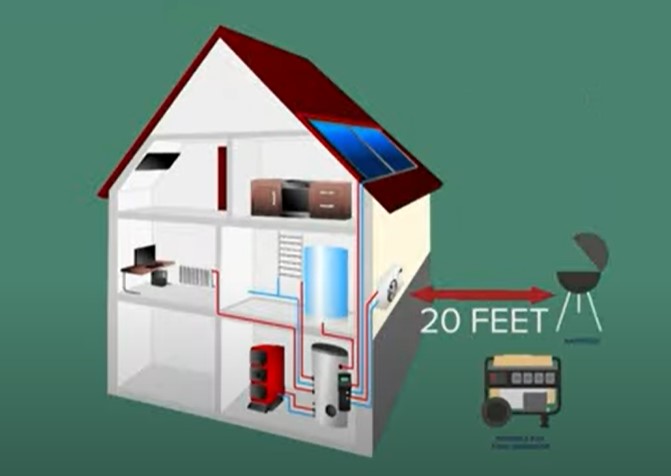
Regularly replacing air filters and keeping your home clean and free of debris can also help prevent carbon monoxide emissions.
By taking these steps, you can protect your family and ensure that your AC unit operates safely and efficiently.
Can You Get Carbon Monoxide Poisoning from a Window Air Conditioner?
If you have an older window air conditioner, there is a chance that it could be releasing carbon monoxide into your home. Carbon monoxide is a colorless and odorless gas that can be deadly if inhaled in large quantities. Symptoms of carbon monoxide poisoning include headaches, dizziness, nausea, and fatigue.
If you start to experience any of these symptoms while using your air conditioner, it’s important to get out of the house immediately and call 911. There are some steps you can take to prevent carbon monoxide poisoning from happening in the first place. Make sure to have your air conditioner serviced regularly by a qualified technician.
Also, never use your air conditioner without proper ventilation – open windows or doors to ensure that fresh air is circulating through the room. And finally, if you have any suspicion that your air conditioner may be leaking carbon monoxide, don’t hesitate to call for help right away.
Can Faulty Air Conditioning Kill You?
Most people don’t think about their air conditioner until it stops working. But did you know that a faulty air conditioner can actually kill you? It’s true!
If your air conditioner is not properly maintained, it can release harmful toxins into the air that can be fatal. In fact, according to the Environmental Protection Agency (EPA), poor indoor air quality is one of the top five environmental health risks.
So how can you keep yourself safe from a faulty AC unit?
First, make sure to have your unit serviced regularly by a licensed professional. Second, if you notice any strange smells or sounds coming from your unit, turn it off immediately and call a technician. And finally, always make sure to ventilate your home when using an air conditioner.
By following these simple tips, you can stay safe and cool all summer long!
Air Conditioner Sets off Carbon Monoxide Detector
If your air conditioner is setting off your carbon monoxide detector, there’s no need to panic. However, it is important to take this situation seriously and take steps to correct the problem. There are a few possible reasons why your air conditioner might be setting off the carbon monoxide detector.
One possibility is that there is a crack in the heat exchanger. This can happen if the unit isn’t properly maintained or if it’s been damaged. Cracks in the heat exchanger can allow carbon monoxide to escape and enter your home.
Another possibility is that the venting for your air conditioner isn’t adequate. If the vents aren’t properly installed or they’re blocked, it can cause carbon monoxide to build up inside the unit. This can be a dangerous situation, so it’s important to make sure that the vents are clear and unobstructed.
If you suspect that either of these issues could be causing your air conditioner to set off the carbon monoxide detector, you should contact a qualified technician right away. They will be able to inspect the unit and make any necessary repairs. In some cases, simply replacing the batteries in your carbon monoxide detector might solve the problem.
But it’s always best to err on the side of caution and have a professional take a look at things just to be safe.
Can Carbon Monoxide Come from AC in Car?
Carbon monoxide is a gas that can come from many sources, including car exhaust. When cars are running, they produce carbon monoxide gas. If the car is parked in an enclosed space, such as a garage, the gas can build up and become dangerous.
Symptoms of carbon monoxide poisoning include headache, dizziness, nausea, and shortness of breath. If you experience any of these symptoms while in your car, get out of the car and into fresh air immediately. If you think you may have been exposed to carbon monoxide, seek medical attention right away.
Can I Get Carbon Monoxide Poisoning from My Air Conditioner?
Carbon monoxide (CO) is a colorless, odorless, tasteless gas that is produced whenever any fuel is burned. As your air conditioner typically runs on electricity it can’t produce carbon monoxide.
However, if your air conditioner is running on a gas-powered generator (for example, if you’re using a portable AC unit), then it is possible for carbon monoxide to build up.
In this case, you would need to take extra precautions to make sure that the area around the generator is well-ventilated.
If you’re ever in doubt about whether or not your air conditioner could be producing carbon monoxide, it’s always best to err on the side of caution and contact a professional for help.
Do Air Conditioners Emit Harmful Gases?
Most air conditioners in use today do not emit harmful gases. However, older units that use chlorofluorocarbons (CFCs) as a refrigerant can release small amounts of chlorine gas into the air when they are first turned on. Chlorine is a toxic gas that can be harmful to human health if inhaled in large quantities.
CFCs have been phased out of production in most countries, so newer air conditioners should not pose this risk.
Is Carbon Monoxide Used in Air Conditioners?
No, carbon monoxide is not used in air conditioners. Air conditioners use a refrigerant to cool air, and carbon monoxide is a poisonous gas that can be deadly if inhaled.
Can air conditioning units cause carbon monoxide poisoning?
Conclusion
If your air conditioner is running properly, it should not produce carbon monoxide. However, if your AC unit is not maintained or installed properly, it could start to produce deadly gas.
If you suspect that your air conditioner is producing carbon monoxide, you should call a professional to have it checked out immediately.